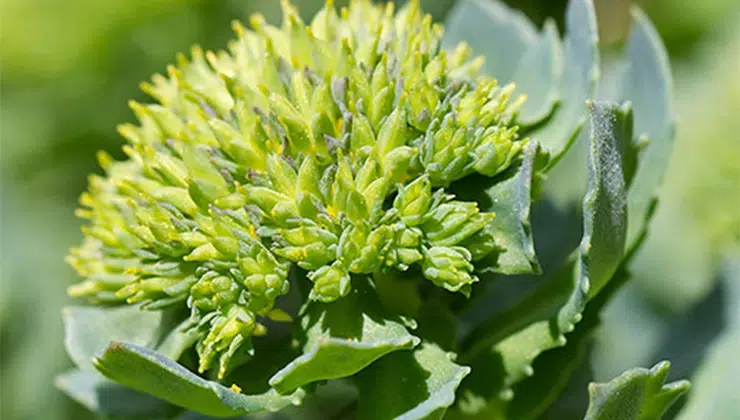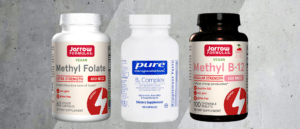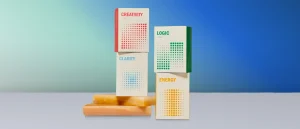Is Rhodiola Rosea the New Ashwagandha?
- By Will Price
- Fact-Checked by Jennifer Dutton
- October 17, 2023
Fast Facts
- Rhodiola rosea is an adaptogen that supports stress relief—physical and mental—and may have a number of other benefits like physical performance, cognition, recovery, and more
- While early research is promising, more human trials are needed to further confirm Rhodiola rosea’s potential benefits
- While not as well-researched as Ashwagandha, its potential effects are somewhat similar
There are a number of factors that cause a supplement to surge in popularity, but perhaps the most consistent one has less to do with its evidential bonafides and potential upsides—it’s a cool name. Fortunately, Rhodiola rosea, a flowering succulent from the arctic zones of Europe, has it all, making it the latest in the conga line of adaptogenic supplements. What does it do? If you just read Rhodiola rosea’s benefits, the better question might be what doesn’t it do? Here’s what the science—plus a nutritionist and registered dietician—have to say.
Rhodiola Rosea Benefits
The list of Rhodiola rosea’s potential benefits is very long, which is promising. A word to the wise, though: a supplement’s purported benefits represent all of the possible benefits, not the sum of benefits. Take registered nutritionist-dietitian and certified exercise nutrition coach Catherine Gervacio’s word for it.
“Supplements are not meant to treat a specific health condition so I take [Rhodiola rosea] as a diet add-on to improve or support overall health and wellbeing, and not as a solution to a specific health issue. Therefore, it should not be confused with medicine,” Gervacio said.
1. Potential for stress relief
As an adaptogen, Rhodiola rosea’s primary function is that of relieving stress. Above any other potential benefits, this seems to be the most supported in the research. In a 2022 literature review, researchers found generally positive outcomes when supplementing Rhodiola for anxiety, depression, fatigue, and burnout (1).
For a more specific example, a double-blind study from 2000 (2) measured the mental performance of night shift doctors and found “a statistically significant improvement” in the tests performed before and after said shifts (short-term memory, associative thinking, calculation, concentration, etc.), and observed no negative side effects.
The paper states that “the results presented in this review provide an encouraging basis for the clinical efficacy of [Rhodiola rosea] preparations in managing various aspects of stress-induced conditions.”
Summary
The research strongly suggests Rhodiola supplementation is an effective tool against many forms of stress—including anxiety, depression, fatigue, burnout and more.
2. Possible fatigue alleviation
Fighting fatigue is one of the reasons Rhodiola rosea became popular as an herbal supplement in its native growth regions (mostly in very cold areas of Europe), but research on its efficacy as a fatigue fighter is mixed.
Some trials, like this one that tested supplementing Rhodiola rosea with 100 people suffering from chronic fatigue (3), have found it to be an “effective treatment in subjects suffering from prolonged or chronic fatigue.”
Others still find “contradictory” findings, like this 2012 review of studies (4) which found a number of promising studies to go along with plenty of poorly executed trials with results that shouldn’t be taken at face value:
“While some evidence suggests that the herb may be helpful for enhancing physical performance and alleviating mental fatigue, methodological flaws limit accurate assessment of efficacy.”
Researchers also found that no two studies reported outcomes in the same way, and therefore results are difficult to compare for consistency.
Summary
Shoddy research methods a somewhat limit the extent to which we know or don’t know Rhodiola’s capacity as a fatigue fighter. Considering its relative lack of serious side effects, it’s certainly worth considering if you suffer from chronic fatigue.
3. May boost athletic performance
Significant lifts in physical performance were among the driving use cases for rhodiola in its heyday as an herbal remedy, but the reality is research to date hasn’t proven this consistently enough to state it as fact. However, it should be said that very few supplements have earned genuine ergogenic—or workout-boosting—status in the eyes of science. Think creatine, whey protein, caffeine, and a handful of others. That said, the research points in both directions in this case.
Some animal studies, like this one done with rats (5), have found Rhodiola rosea supplementation improved muscular performance. Yet, in a 2023 systematic review of randomized control trials (RCTs)—effectively the gold standard for “proof”—a team of researchers analyzed 13 studies and found a mixed bag of results (6).
Of the 13 analyzed studies, 11 showed positive effects of Rhodiola rosea on physical performance. Though that sounds like a good thing, the reviewers themselves stated the datasets likely do not warrant conclusive evidence. The studies analyzed a wide array of markers for physical performance, including rating of perceived exertion, blood lactate, creatine kinase, heart rate, and antioxidant capacity, and used even broader populations to collect the data (from untrained youths to elite athletes). Despite this, the review found Rhodiola rosea had a positive effect on endurance performance and rating of perceived exertion when consumed in smaller doses, while larger and more consistent doses supported anaerobic workouts but not endurance workouts.
An earlier research review from 2022 preached similar caution in terms of speaking in absolutes about Rhodiola rosea’s potential workout benefits, but offered relatively confident words otherwise (7):
“[Rhodiola rosea] has the potential to reduce oxidative stress, muscle pain, and injury, improve skeletal muscle damage and muscle recovery during training, as well as improve athletic explosive power. With the gradual improvement in quality of life and the increasing demand for sports and wellness drugs, [Rhodiola rosea] is expected to become an effective supplement.”
Summary
Though consistency and research quality is still up for debate, the majority of studies aimed at surmising Rhodiola’s fitness- and workout-boosting capacity point toward it being a generally effective supplement for a variety of athletic activities.
4. Possible anti-cancer and chronic disease effects
While Rhodiola rosea’s potential as a cancer ward and aid in fighting chronic diseases like diabetes is probably the most exciting potential benefit of supplementing the adaptogen, it’s also relatively early days in terms of hard evidence to support that.
A number of non-human studies have shown the substance may limit the growth of a number of different cancer types, with a sugar compound called salidroside (8) taking the credit. The mechanism for this is thought to be the supplement’s tendency to “inhibit the mTOR pathway and reduce angiogenesis” (9) which is a fancy way of saying it slows cell multiplication, which may slow cancer growth. That said, even the most promising research comes with scientific caution—there is clear promise with Rhodiola rosea, but it’s best not to put the cart before the horse with research (10).
Summary
A sugar compound called salidroside, which may slow cell multiplication, is though to potentially have an anti-cancer and disease-fighting effect. That said, the research is extremely fresh, and not nearly definitive yet. This is a wait-and-see.

Rhodiola Rosea Side Effects
Studies have shown Rhodiola rosea to be safe to supplement in the 6- to 12-week range, which is to say there aren’t any studies that have tested the substance beyond 12 weeks (11).
Specific side effects may vary, but the most common are dry mouth, dizziness, or headaches.
It should also be noted that, because Rhodiola can have a stimulating effect, it’s best taken well before you head off to bed—usually in the morning, on an empty stomach, which also helps with absorption.
Rhodiola Rosea Recommended Dosage
While there’s no hard-and-fast dosage recommendation for Rhodiola rosea yet, studies have suggested a healthy range.
“Some research indicates that a daily intake of 200–600 mg of [Rhodiola rosea] could be safe and potentially beneficial for some individuals,” Kelsey Costa, MS, RDN, a registered dietitian and nutrition consultant for Consumer Health Digest said. “However, it’s critical to note that, like all dietary supplements, [it’s] not approved by the FDA as a treatment for any specific medical condition.”
Gervacio recommended supplementing it in the 200-400 mg range.
What the Internet Says About Rhodiola Rosea
Rhodiola rosea on Reddit
As with any adaptogen—and as with any conversation on Reddit—there will be vocal advocates and vocal dissidents. You’ll find threads and comments where posters are taking high doses (1000 mg in the linked example) and feeling no effect and posters taking significantly less that have their “entire mindset” changed.
This lines up with how we view adaptogens in general. As Gervacio said, they are not medicine and their potential effects are difficult to specify person-to-person. There is an array of potential benefits a person may feel, but very little suggests each person can expect similar effects from the substance.
Andrew Huberman on Rhodiola rosea
Speaking on The Tim Ferriss Show, neuroscientist-podcaster Andrew Huberman touted Rhodiola rosea’s ability to reduce perceived effort in a workout.
“200 milligrams of rhodiola rosea prior to a resistance training workout, you will notice you will have more vigor—you can just go longer,” Huberman said. “It’s kind of striking how after the workout you don’t feel as depleted. That’s the main reason I was taking it.”
Huberman says he takes the supplement 30 to 60 minutes before a workout and says the effects last about 4 hours.
“In principle, one is able to generate the same amount of effort without the same amount of energy-depleting neurochemicals,” Huberman said.
Layne Norton on Rhodiola rosea
Nutritional scientist and powerlifter Layne Norton has suggested Rhodiola rosea is on its way to becoming a “1st tier” supplement for fitness—on the same level as the aforementioned caffeine, whey protein, and creatine.
He cites the substance’s many potential physical benefits, while also making note that these benefits have not been confirmed or replicated enough in human trials. Norton says his supplement company, Outwork Nutrition, uses Rhodiola rosea in its pre-workout formulas.













